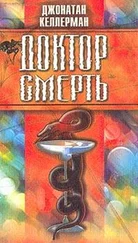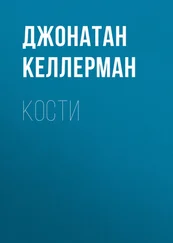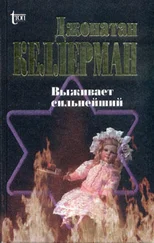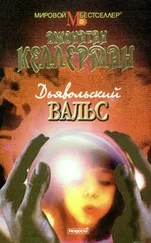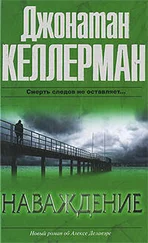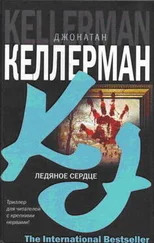“I have to go,” Barbara says.
“Almost done.” Cindy steps back. “Voilà, baby. Jeepers creepers, look at them peepers. Before they were green. Now they’re green .”
“Thanks,” Barbara says, and she runs down into the station, praying Cindy doesn’t forget to take the knapsack.
She resurfaces at Bleecker street into the same steam, here charged with urgent energy. Faces are younger, pants are tighter, the music trickling from the windows earth-shaking bass and fuzzy guitars.
Hello, I love you, won’t you tell me your name?
She’s still unhip, although not as obviously. For all anyone knows, she’s making a statement with her outfit, like those gals who don’t shave their legs as an expression of solidarity with the Vietnamese.
Address in hand, she crosses the NYU campus, littered with fliers protesting the war; protesting the treatment of the people protesting the war outside the Democratic National Convention in Chicago. The news about Czechoslovakia is hours old, far too fresh to have permeated the collective consciousness. She can imagine the discomfort it will cause to those who like to talk about the humanity and beauty of the Soviet system.
Her own view is hopelessly colored by her parents, which makes her hopelessly square. Sometimes she’ll disagree with her father about nuclear weapons or whatever, but without much heart. He gets so upset, turns red and pounds the table, spilling his drink, bellowing at her in Czech.
Tys tam nebyla.
You were not there.
How can she argue with that? She can’t, that’s how.
An American daughter cannot lay claim to suffering; her parents have gobbled up the entire supply, having endured the twin catastrophes of the Germans and the Russians. Věra was twelve when her mother, father, and younger brother perished in Theresienstadt concentration camp. She escaped to the countryside with her older brother, Jakub, sheltering with a friend of his from the Communist Party. During the purges, the same friend would denounce Jakub as a Trotskyite and a Titoist and a Zionist, sending him to the gallows.
Barbara has no memory of the event, which took place when she was an infant, after her parents had left Prague. Věra keeps her brother’s photo on the mantel, and she lights a candle on the anniversary of his death, a rare concession to tradition in their godless home.
Her father’s story is less well understood. He claims not to know his exact age, insisting people didn’t keep track of things like that. Barbara guesses he’s Věra’s senior by fifteen years or more; his face is at once layered and eroded, like a fortress that has endured centuries of trial, centuries of repair.
This much she knows: he had another family before the War.
He never talks about them. But once, during a screaming match, Věra slipped up, demanding to know how she could compete with a ghost. He did not love her as much as Jitka, he could never love her as much as Jitka.
Through two closed doors, Barbara heard the slap, then weeping in two registers.
Later, much later, she asked her mother who Jitka was.
A friend of your father’s.
Did you know her?
Věra shut her eyes. Do your homework.
The third girl in last spring’s anatomy class was Japanese, quiet and shy, with a blunt-cut bob and discount eyeglasses that gave her the same anxious gawp as the frogs they cut open. Right away Barbara identified her as another child of immigrants; the deliberation, the wait-and-see, the rounded shoulders bowed under expectation.
When the instructor announced that it was time to pair up, the girl, whose name was Ka-something but who went by Kathy, looked hopefully at Barbara. Barbara felt intense heat, like she was confronting the sun in a mirror, and she turned away to partner with pretty, chatty, happy, incompetent Cindy Gorelick.
Kathy ended up working with a boy named Leon Fine, and Barbara spent the rest of the semester avoiding eye contact with her. But sometimes their paths crossed, and in the brief moments that they regarded each other, Barbara saw no disappointment, and certainly no surprise. Kathy, too, grasped the dog-eat-dog truth of the world; given the chance, she would’ve done the same to Barbara.
The lack of judgment made Barbara feel even guiltier.
It didn’t change her mind, though.
The ad in the voice led her to expect something grand, an art studio with nice light, but Minetta Street turns out to be a short, twisted passage lined with private homes. The door to number eleven is painted bright red. There’s a note.
CLASS MOVED TO THE GARDEN 
Barbara retraces her steps to Bleecker Street, where the acute intersection forms a small, overgrown park. Through cascading greenery she spots a circle of people sitting cross-legged on the ground. She walked right past them.
“Welcome, sister.”
The speaker is a white man in his midforties wearing a saffron robe. He has a shaved head and a dark, knife-point Vandyke. He beams at her.
“I’m looking for the pottery class,” Barbara says.
The man raises his palms. Behold.
All she sees is a bunch of hippies. There are no tools, no tables, no wheels. Nobody has any clay.
“Please,” the man says, “join us.”
Confused, annoyed, Barbara settles herself awkwardly on the ground between two older women who shift to give her room. A couple wearing matching peasant shirts gaze at each other through dilated pupils.
No, her parents would not approve.
There’s no word in Czech for hobby .
The fifth student is a tall, thin girl about Barbara’s age. She’s not a hippie. In fact, she’s dressed like a Quaker, in a plain navy skirt that spreads around her generously and a long-sleeved white blouse buttoned to the neck. She ought to be burning up in the heat, but her skin is dry, and she sits up high and dignified.
Catching Barbara’s eye, she tilts her head at the robed man, then raises a doubtful eyebrow, and Barbara smiles, knowing immediately that they’re going to be friends.
Not a quaker; not even close.
Her name is Frayda Gonshor, and she lives in the Grand Street Projects on the Lower East Side. Like Barbara, she was caught off guard by the announcement that payment for next week’s class was due in advance.
The ad said free.
I share my wisdom freely the robed man said. He called himself Sri Sri Jivanmukta Swami. The supplies cost three dollars.
“Chutzpah,” Frayda says as she and Barbara wait for the light to change.
Barbara agrees. All the same, they both coughed up the money. Three bucks isn’t too bad, and she senses that she and Frayda share a common goal: escaping their parents.
“I wonder what his real name is,” Frayda says.
“Probably something like Henry,” Barbara says.
“Ralph.”
“Mickey.”
“Mickey,” Barbara says, giggling. “Sri Sri Mickey Lowenstein.”
“Guru Goldblatt.”
“Swami Schwartzbaum.”
The two of them teeter down Bleecker Street, arm in arm, in hysterics, exchanging information in a rush. Barbara has to force her long legs to slow down, as does Frayda, who is even taller than her, maybe the tallest woman Barbara’s ever seen, high-waisted, with hands that flap excitedly, evoking nothing so much as a flightless bird.
“Have you ever made pottery before?”
“A little,” Barbara says.
“I haven’t.” Frayda shrugs. “It said no experience necessary.”
“I think that means Mickey,” Barbara says.
Signs for the subway come into view, and Barbara feels herself slowing further, unwilling to part yet.
Читать дальше


